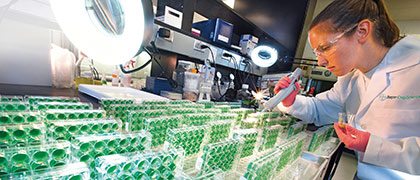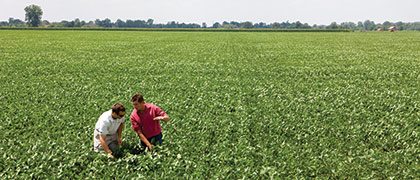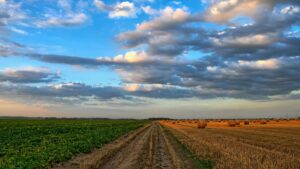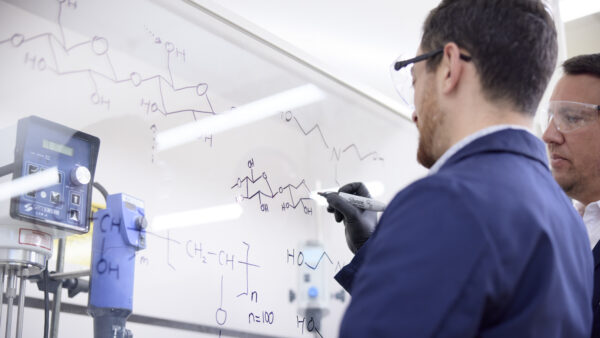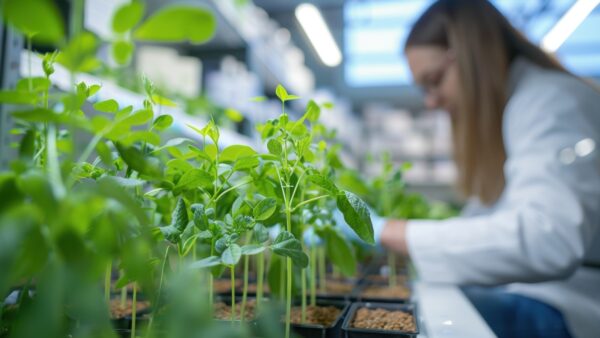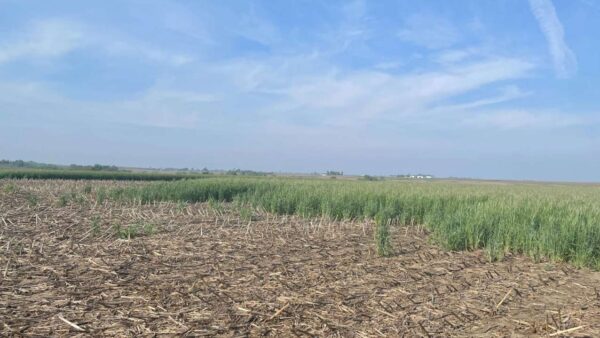All Eyes on the United States
Most likely, being a reader of Seed World, you full well understand your unique role and vested interest in the United States seed industry. Business is business. Your day-to-day decisions and actions related to biotechnology, when combined with those made by other stakeholders, will ultimately define the collective U.S. experience. First and foremost your daily contribution and effort will help chart the course of domestic agricultural development in the United States. The ebb and flow of the American cumulative biotechnology experience subtly impacts global development throughout the food and agriculture industry. All eyes are on the U.S. – meaning you!
The federal regulatory system governing U.S. seed industry biotechnology activity applies uniformly across the 50 states (including the multiple islands comprising Hawaii) as well as Puerto Rico. The science-based regulatory system is augmented by a system of federal laws that recognizes the value of intellectual property associated with biotechnology and protects the rights of technology owners. This approach is generally highly regarded and much envied throughout the world.
Plants of the future: crops are equipped with important new traits such as herbicide and insect resistance.
Initial research and development activities do not garner much public attention. They are governmentally regulated and are performed confidentially in highly controlled laboratory environments. Some of the more promising technological outcomes from laboratory development will advance to the regulated-confined field trial phase. Of those trials, fewer still will achieve deregulation, and fewer yet will become commercialized.
Trials may be performed for numerouis reasons. Some may focus on trait introgression while others deal with determining levels of trait efficacy. Successful field trial design and operation often involve testing at multiple locations that provide varying environments.
Field trials, at the onset, may be performed at a single, closely controlled corporate research station. However, it later may become necessary to place an expanded number of trials at multiple locations in broader geographies to achieve statistically sound data under a wide range of required environments. Multilocation trial placement may require reliance upon multiple organizations to provide appropriate physical field sites and agronomic services. This may include a combination of multiple contract researchers, industry collaborators, university collaborators, third-party service providers, and cooperating farmers to augment the company’s network of corporate field research stations. From inception of the field trial phase within the regulatory process increasing numbers of people become involved in or aware of the activity.
Field scale trials are part of assessing potential traits for market.
U.S. Department of Agriculture or U.S. Environmental Protection Agency regulatory oversight is applied to each permitted field trial that contains an unapproved technology, irrespective of the number of locations or their geographic disbursement. All trials are subject to periodic official visits to assure that they are being conducted in compliance with pre-approved protocols designed to protect the environment from an unintentional release of the technology.
As part of an official observation, the regulatory inspector can make determinations as to such key requirements as:
• Does the trial meet physical separation requirements (distance) from other sexually receptive plants that are part of another planting?
• Are the physical boundary markers denoting the trial appropriately located and properly identified?
• Is the field area separating the trial from certain other crops or trials absent of volunteers?
• Does the trial manager have required trial authorization and seed movement documents on hand?
• Is proof available to support that personnel conducting the trial are knowledgeable of the required protocols and have received appropriate training?
Questions such as these represent the wide range of information that often is required of a trial manager during an official regulatory observation visit.
Trait developers take the U.S. regulatory field compliance obligation seriously. They stridently try to avoid infractions whether self-identified or discovered during an official observation visit. Infractions undermine confidence placed not only in the respective trial manager but also in the company granted the regulatory permit to perform the trial. Failure to perform a trial in a compliant manner places the permit holder at significant legal and monetary risk in the event of noncompliance. The need to resolve noncompliance issues can lengthen the time required for companies to attain regulatory approval and delay commercialization.
To mitigate the risk of having a regulated field trial found to be noncompliant during an official observation visit, companies take a variety of precautions. Internal organizations are created to provide quality management and regulatory compliance training and oversight services.
Services may be provided or applied to both corporate and external personnel entrusted to perform regulated field trials.
Company-performed field compliance inspection activities are quite seasonal in nature. Trait developers often choose to rely upon assistance from external service providers to conduct field trial inspections as a means to gain labor and cost efficiencies and independent viewpoints of corporate compliance activities.
The Critereon Company is one such service provider. It specializes in supporting internal efforts of various trait developers, and according to Critereon principal Phil Neff, the company has done so for more than a decade. Neff’s company colleague, Rod May, states, “In many cases, our inspections serve as the ’dry run‘ to help the field trial manager be fully prepared for a USDA audit.”
The U.S. biotechnology experience continues along a formative path with the passing of each day. As the collective experience gradually increases both in breadth and depth, the journey will continue to be scrutinized around the globe. The collective U.S. experience with biotechnology in the food and agriculture sectors is observed by many as it develops in real time — as if it is developing in a fishbowl. The process is most dynamic.
Some view the emerging American biotechnology experience in seed development as being good in that future grain, oilseed and other crop production may be sufficiently enhanced to meet increasing global demand for food, feed and industrial use. They may categorize the collective U.S. experience as a highly valued and rapid evolution that will help feed a growing world population.
Yet others may deem the U.S. experience as being a risky revolution in that it is taking place much too quickly and offers far too few assurances about the long-term impact of biotechnology on human health and safety.
Viewpoints of observers and stakeholders will likely continue to vacillate prior to the time the final chapter of the U.S. experience with biotechnology can be written and recorded in history. The dynamics will provide rich substance for discussion by people from other lands and cultures as they too struggle with issues surrounding biotechnology. Each discussion will be unique.
Those in the United States contributing to the development, introduction, evaluation, commercialization or utilization of seed products derived by biotechnology are entrusted with a personal and legal responsibility to comply with the U.S. regulatory process. For better or worse, each person’s actions contribute to the collective U.S. biotechnology experience and ultimately will influence the development of agriculture well beyond America’s shores.
Agriculture, particularly the seed industry segment, remains a dynamic and developing industry. Ever changing and constantly evolving. You play a vital role. Do it well!
Dennis Thompson is dedicated to delivering solutions and empowering people and organizations to solve complex problems related to international agricultural development and global food security. His career experience and international credentials include extension education, agronomy and administration.



